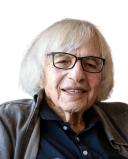Persuasion
How Does Ideology Lead to Violence?
Right-wing ideas that influenced Timothy McVeigh.
Updated September 21, 2023 Reviewed by Lybi Ma
Key points
- Authoritarian regimes tend to connect ideology and violence.
- McVeigh’s ideological touchstone was an apocalyptic novel by neo-Nazi William Pierce.
- Democratic ideology must use persuasion, not violence.
A new look at Timothy McVeigh, the Oklahoma City bomber who killed 168 people in 1995, makes clear that he was actively involved with and influenced by a number of radical-right American ideologies. The legal writer Jeffrey Toobin demonstrates in his book, Homegrown: Timothy McVeigh and the Rise of Right-Wing Extremism, how the ideologies of Ronald Reagan, Rush Limbaugh, Newt Gingrich, and Pat Buchanan, along with the notorious Turner Diaries, were embraced by McVeigh and laid the groundwork for his violent action.
Those ideologies, strengthened by McVeigh’s bombing of the Alfred P. Murrah Federal Building in Oklahoma City, have created a far-right political culture of violence that afflicts America today.
But just what is ideology? And how does ideology lead to violence?
For Marxists, ideology is always a false means of justifying oppression. But others recognize that ideology cannot be characterized so simply. Ideology is ever-present and has a more general meaning: passionately held convictions, connecting with larger principles that demand change and impel action.
The Oxford English Dictionary has an 1896 definition of ideology as: “A systematic scheme of ideas, usually relating to politics, economics, or society and forming the basis of action or policy; a set of beliefs governing conduct. Also, the forming or holding of such a scheme of ideas.”
From that standpoint, there were indeed strong underlying ideologies in Reagan, Limbaugh, Gingrich, and Buchanan, as well as in the Branch Davidian cult in Waco (the Oklahoma City bombing was timed to be on the second anniversary of the shootout between cult members and agents from the Bureau of Alcohol, Tobacco, and Firearms). They all encouraged violence.
Authoritarian regimes also tend to connect ideology and violence. Stalin and Hitler had basic ideologies that justified their killing and even provided a claim to virtue. You cannot have mass killing without a claim to virtue.
McVeigh’s ideological touchstone was one of the most murderous volumes ever written, an apocalyptic novel by American neo-Nazi William Pierce called The Turner Diaries. In that novel, the protagonist is part of a successful violent revolution of “white patriots” against an American government that had fallen under the influence of Jews and Blacks. The “white patriots” employed nuclear, biological, and chemical weapons to systematically eliminate all Jews and non-whites throughout the world.
Although Ronald Reagan had no direct influence on McVeigh, his insistence that “government is not a solution to the problem; government is the problem,” and his depiction of the federal government as a “malevolent force” played a crucial role. “Reagan Republicans,” according to the historian Sean Wilentz, “absorbed into their coalition an array of aggrieved Americans, including quasi-theocratic white Christian nationalists, the gun manufacturing lobby, anti-abortion militants, and anti-gay crusaders.”
McVeigh’s ideology was not anti-government, Toobin explains, so much as that of “a right-wing extremist who defined his politics in opposition to the federal government of President Bill Clinton.”
The most direct and extensive ideological influences on McVeigh were Newt Gingrich and Rush Limbaugh. He closely studied Limbaugh’s book The Way Things Ought to Be, one of the bestselling nonfiction volumes of all time, and listened continuously to Limbaugh’s radio show accusing Bill and Hillary Clinton of heinous crimes. McVeigh concluded: “As they say, ‘Russ is right.’” Limbaugh persuaded McVeigh that there were a lot of people in America who thought like him. In fact, McVeigh belonged to a community that gathered around “the gun show circuit” and spent his time with “like-minded people who were committed to a rising political movement.”
Toobin understands Gingrich and Limbaugh to be “the voices of an ascendant right-wing authoritarianism.” As Speaker of the House of Representatives, Gingrich’s “incendiary” language joined that of Limbaugh “in rhetorical violence at a pitch the country had rarely heard before.” Gingrich spoke of Democrats as “sick, pathetic, lie, anti-flag, traitors, radical, corrupt,” insisting that “people like me are what stand between us and Auschwitz. I see evil all around me every day.” Similarly, Limbaugh declared that “the second violent American revolution is just about—I got my fingers about a quarter of an inch apart—that far away.”
McVeigh was also attracted to the ideas of the Michigan Militia—a paramilitary anti-government group—and to related ideas in far-right magazines such as the Spotlight and Soldiers of Fortune, which he referred to as reflecting his “world/culture” and the “the stuff I identify with…stuff I know and live.” He mailed in a request for KKK membership and declared that “America is in serious decline.” In a letter published in The Lockport (New York) Union-Sun Journal on February 11, 1992, McVeigh asked: “Is a civil war imminent?... Do we have to shed blood to reform the current system?”
Finally, McVeigh was importantly influenced by Pat Buchanan, the radical politician and theorist who spoke starkly about the “New World Order” of a single world government created by shadowy, powerful, international elites to topple the America created by the founding fathers. McVeigh shared Buchanan’s fanatical emphasis on gun rights: For both men “guns meant freedom,” a stance that Buchanan deepened in McVeigh and “politicized…as never before.”
It is hard, however, to say how much McVeigh was influenced by Buchanan’s admiration for authoritarian and fascist figures: for Joe McCarthy, for Spain’s Francisco Franco, and Chile’s Augusto Pinochet, to whom he referred as “soldier-patriots,” and for Adolf Hitler, whom he viewed as “an individual of great courage [with] an intuitive sense of the mushiness, the character flaws, the weakness masquerading as morality that was in the hearts of the statesmen who stood in his path.” Or by Buchanan’s denial of the Holocaust in general and Treblinka in particular, and his disdain for the democratic “death spiral.” But what we can say is that none of these ideas were antithetical to McVeigh.
After the Oklahoma City bombing, ideologues like Limbaugh were quick to say that it was the work of foreigners or some left-wing group. But they themselves were the terrorists, as Toobin makes clear with his title Homegrown. McVeigh himself understood his incipient violent movement was homegrown: “I believe there is an army out there, ready to rise up, even though I never found it.” McVeigh could not find that “army” because the internet and social media that brought extremists together did not yet exist.
In fact, after the bombing, there was an increase in right-wing terror, particularly during the administrations of Bill Clinton and Barack Obama.
Present-day far-right movements have inherited these ideologies and their threat of violence, culminating in the January 6 Insurrection and continuing to this day.
Donald Trump commands violent groups such as the Proud Boys and the Oath Seekers and embraces the insurrectionists of January 6 as “great patriots.” Trump himself is not capable of any consistent ideology. He is genuinely transactional in his solipsistic reality, finding truth only in what the self seeks and needs, and in his claim to own reality itself. Yet he constantly calls for violence, and among his followers could be another McVeigh.
Is there such a thing as a democratic ideology? A liberal democratic ideology? If so, can we identify it and experience it as a call to action? At the core of liberal democratic ideology is equal citizenship—understood as political agency, acceptance of pluralism in its many incarnations, and tolerance of disagreement. As a thrust to action, democratic ideology must use persuasion, not violence.
Though American democracy required the Revolutionary War, and equal citizenship required the Civil War, the threats to democracy today can be met with nonviolence. In contrast with contemporary white supremacist ideologies, a democratic ideology is inherently nonviolent and must discourage and oppose violence because it could interfere with such necessary democratic functions as the transfer of power and adherence to the rule of law.
This nonviolence is in no way passive. The now-vulnerable institutions of liberal democracy have been battered, but they can still be energetically asserted: for instance by the criminal indictments of Trump brought by Jack Smith and Fani Willis and by scrupulous attention to election integrity. Also by asserting wherever possible, the embattled civil rights and liberties of women, people of color, migrants, and LBGTQ Americans.
Everyday civic structures are core embodiments of liberal democracy. These structures include schools, churches, libraries, and specialized interest groups (singing, fishing, cars, cooking). Many of the associations of civil society are attacked by extremists, but they are the stuff of pluralist social life in America and cannot be effectively shut down.
Combatting extremists requires a tough-minded approach that sees the limitations of what Louis Hartz, the American political scientist, speaks of as America’s “natural liberalism,” a liberalism created by the absence of a feudal society that leads to a “happy national family.” The approach needed requires a sense of the catastrophic threat to the centrality of elections, the peaceful transfer of power, and the rule of law in general.
Nonviolence has its own intensity. Democratic ideology is not geared to any moment of decisive victory. There is no single political moment of truth but rather ongoing vigilance and continuous struggle.
References
Carter, Simone. “Donald Trump Praises Jan. 6 Rioters: 'Great Patriots'.” Newsweek. January 14, 2023.
Hartz, Louis. The Liberal Tradition in America: An Interpretation of American Political Thought since the Revolution. New York: Harcourt Brace & Co, 1955.
Kinsley, Michael. “Can we stand Pat?” Washington Post. January 9, 1992.
Toobin, Jeffrey. Homegrown: Timothy McVeigh and the Rise of Right-Wing Extremism. New York: Simon & Schuster, 2023.
Wilentz, Sean. “American Carnage.” New York Review of Books. August 17, 2023.




